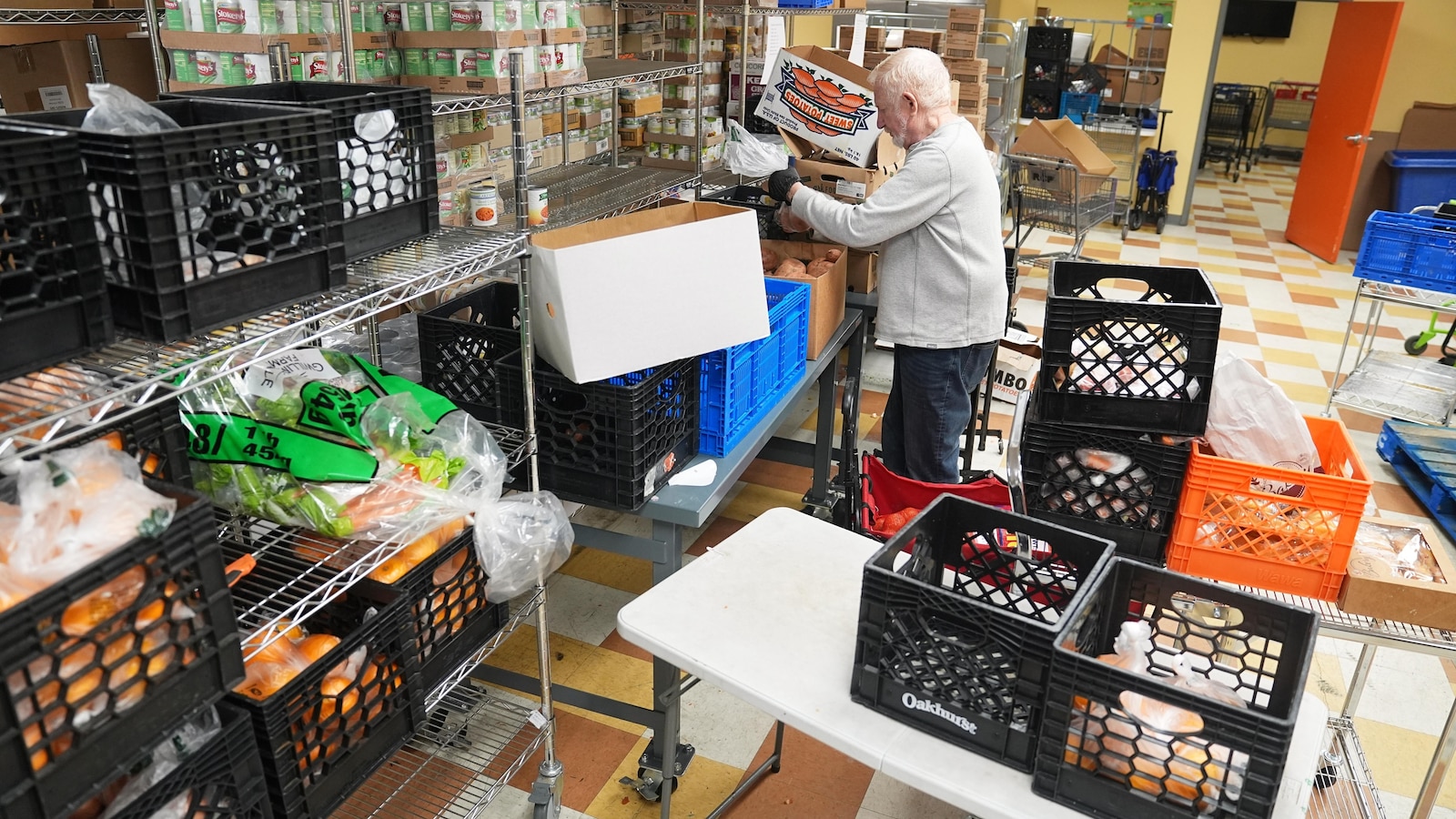By James Rodriguez, The Appleton Times
WASHINGTON — As the federal government shutdown drags on, millions of Americans reliant on SNAP benefits are caught in a whirlwind of legal twists, with some states distributing November funds while others remain in limbo. A federal judge's order to release full payments was temporarily halted by Supreme Court Justice Ketanji Brown Jackson late Friday, leaving uncertainty for nearly 42 million recipients who depend on the program, formerly known as food stamps, to buy groceries.
The delays stem from the Trump administration's initial announcement last month that it would not fund November SNAP benefits due to the shutdown. This decision sparked a legal battle, exacerbating hardships for the roughly 1 in 8 Americans who receive these monthly allotments. Most beneficiaries have incomes below the poverty line, set at about $32,000 for a family of four, with maximum monthly benefits reaching nearly $300 for an individual and up to nearly $1,000 for a family of four, though many get less based on income calculations.
On Thursday, a federal judge ordered the administration to provide full November benefits, rebuking the partial funding plan that relied on a $4.6 billion emergency reserve. States like Hawaii, Oregon, and Wisconsin moved swiftly to comply, issuing payments as early as Friday. “We moved with haste once we verified everything,” said Joseph Campos II, deputy director of Hawaii’s Department of Human Services, in an interview with The Associated Press.
Oregon Gov. Tina Kotek, a Democrat, highlighted her state's rapid response. She said state employees “worked through the night” to ensure full November benefits were issued “to make sure every Oregon family relying on SNAP could buy groceries” over the weekend. Similarly, officials in California, Kansas, New Jersey, Pennsylvania, and Washington confirmed that some recipients received their full payments on Friday.
In Washington state, Gov. Bob Ferguson, also a Democrat, reported that more than 250,000 households who missed their regular payments in the first week of November got their full amounts on Friday. He added that the remaining beneficiaries would receive funds on their scheduled dates later in the month, provided legal challenges do not block distribution further.
However, Justice Jackson's temporary pause, issued Friday night, has thrown these efforts into doubt. Jackson, who handles emergency matters from Massachusetts, acted to allow an appeals court time to consider a more permanent halt. This came after the Trump administration appealed the judge's order, arguing in a Supreme Court filing that “there is no ready mechanism for the government to recover those funds” already distributed.
Before the pause, states such as Colorado and Massachusetts had planned to release full payments as soon as Saturday, while New York anticipated access by Sunday. New Hampshire expected benefits over the weekend, and Arizona, Connecticut, and Minnesota projected availability in the coming days. Now, whether these distributions proceed remains unclear, with many state officials awaiting guidance from the U.S. Department of Agriculture, which administers SNAP amid the shutdown.
The shutdown's impact has rippled beyond delayed benefits, leading to surges in demand at food banks and pantries nationwide. Long lines for free meals and drive-thru giveaways have become common, prompting some states to allocate emergency funding to these resources. Others have used their own dollars to provide direct aid to residents while federal funds were in limbo.
“The twists and turns since have exacerbated uncertainty for the nearly 1 in 8 Americans who receive monthly SNAP benefits to spend at grocery stores and farmer’s markets,” according to a report from ABC News, which compiled accounts from officials across the country.
The legal saga began when the Trump administration stated SNAP benefits would skip November entirely due to the shutdown. Two judges later ruled against skipping the month, leading the administration to propose partial benefits from the contingency fund. But Thursday's ruling deemed that insufficient, mandating the use of other funds for full payments—a decision now under appeal.
Recipients' experiences vary starkly by location. In states that acted quickly, like Oregon and Hawaii, families could access groceries over the weekend. Campos noted Hawaii's Department of Human Services instructed EBT providers promptly after verifying the judge's order. In contrast, residents in other states face extended waits, potentially into next week, as officials seek clarity from the USDA.
The broader context of the government shutdown includes partisan clashes, with Republicans decrying Democrats' offers and uncertainty over weekend votes. Related developments include a judge laying out a path for SNAP benefits and rebuking the Trump administration's handling. Amid this, SNAP participants—many low-income families—have turned to community support systems strained by increased need.
Experts and officials emphasize the program's critical role. With 42 million Americans enrolled, delays affect vulnerable populations, including children and the elderly. Food banks report unprecedented demand, with some states stepping in with temporary measures. For instance, emergency funding has bolstered pantries, but it's no substitute for regular benefits.
Looking ahead, the appeals court's decision could determine if full November payments proceed or if the administration's partial funding plan prevails. If the pause becomes permanent, states that already distributed funds might face complications, as the administration warns of recovery challenges. Meanwhile, beneficiaries in waiting states continue to grapple with uncertainty, highlighting the human cost of the ongoing shutdown.
As the legal battles unfold, the situation underscores the fragility of federal safety nets during political impasses. With no immediate resolution in sight, millions remain hopeful for clarity—and groceries— in the days ahead. Associated Press reporters contributed to reports on state-level responses, painting a picture of a patchwork system strained by federal discord.
